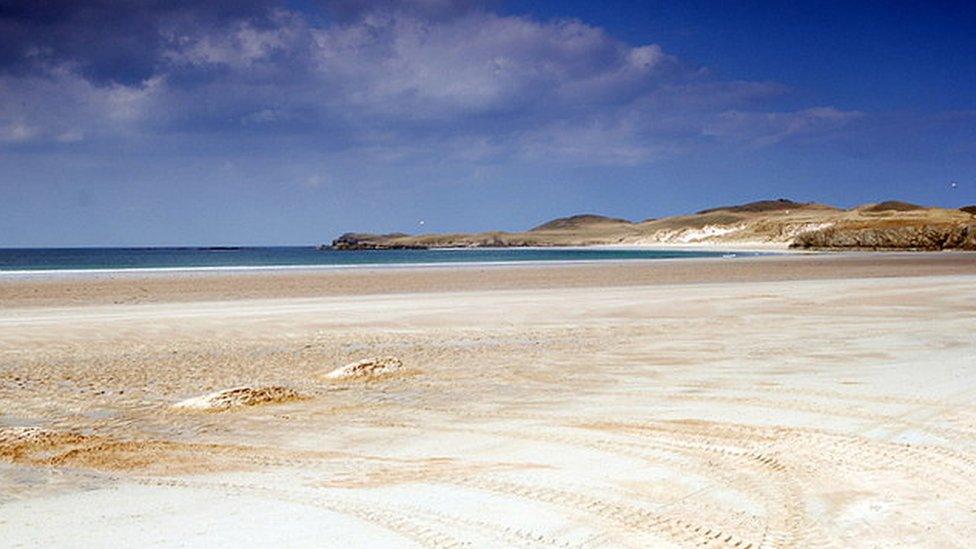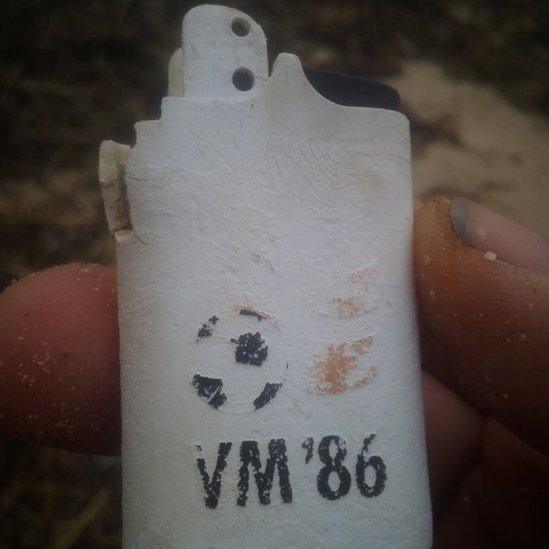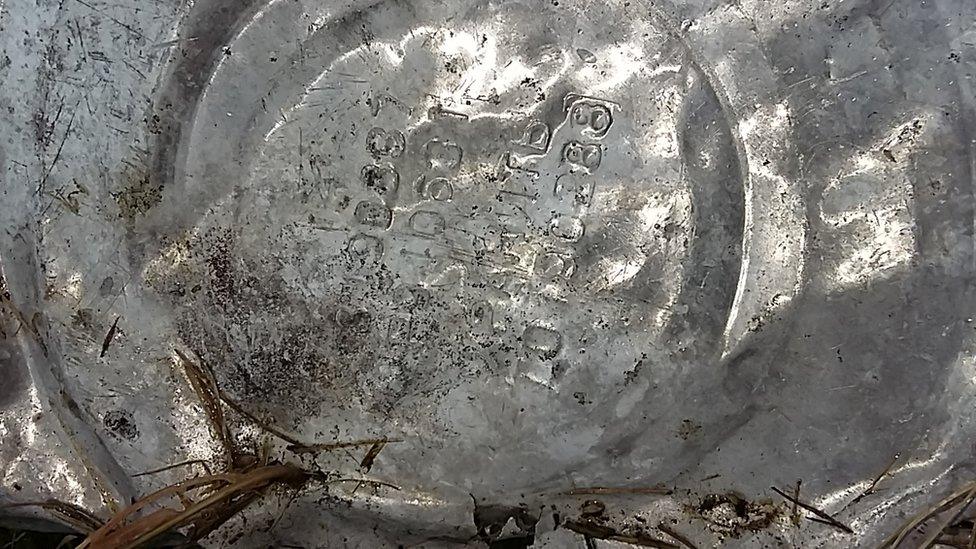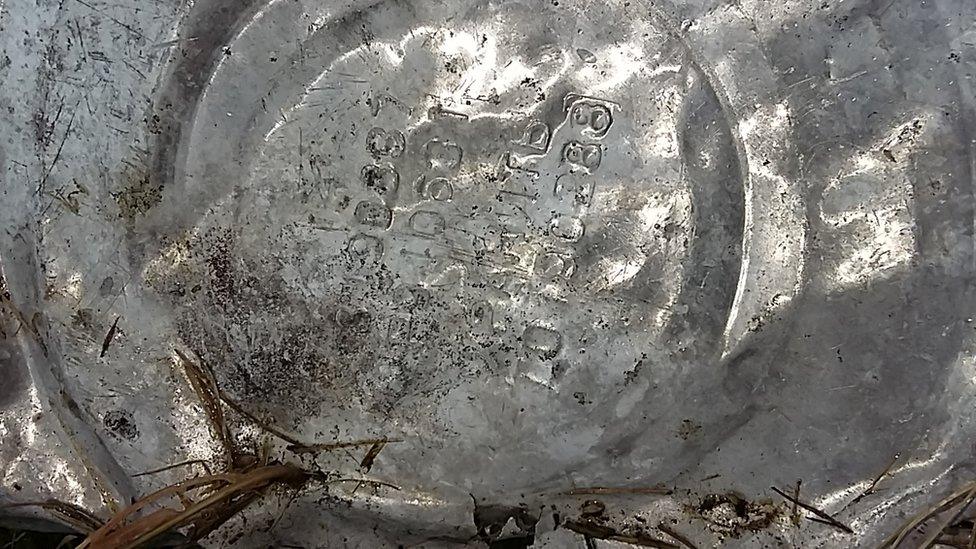Mexico 86 World Cup lighter among litter on Scottish beach
- Published

The beach clean was done at Balnakeil, Durness
Merchandise from a FIFA World Cup held more than 30 years ago was among piles of rubbish cleared from a Highlands beach over the festive period.
The cigarette lighter was made for Mexico 86.
Organisations Plasticatbay and Durness Active Health did the beach clean at Balnakeil, near Durness, in Sutherland.
Lotion bottles from Russia and jam containers from Newfoundland were also among the 450lbs (204kg) of litter tidied away.

The lighter from the World Cup in 1986
Plasticatbay said the Mexico 86 lighter was significant because it showed how resilient plastic in the environment is.
Dr Julien Moreau, of Plasticatbay, said most of the waste cleared away was related to the fishing and other marine industries.
But he told BBC Radio Scotland's Newsdrive programme that some litter had been found to have travelled considerable distances on the Gulf Stream.
He said: "We have indentified items from Canada.
"I have also found items from Russian boats and something two days ago with writing in Indonesian, but you don't really know if that came from there or was carried on boats with Indonesian crew."
Dr Moreau said it was "quite scary" to think the commemorative World Cup cigarette lighter might have been floating in the sea as marine pollution for 32 years.

A Soviet-era cans found in a beach clean in another part of the Highlands last year
Previous beach cleans in the Highlands have recovered old rubbish.
Tin cans from Soviet-era fish factory ships were found among litter cleared from two shorelines last year.
More than 300 bags of rubbish were gathered during the beach cleans at Dun Canna, north of Ullapool.
The tins were from factory ships, known as klondykers, which would anchor in Loch Broom off Ullapool to process mackerel in the 1970s to early 90s.
The beach clean was part of the Scottish Wildlife Trust's Living Seas project.
- Published24 May 2017
